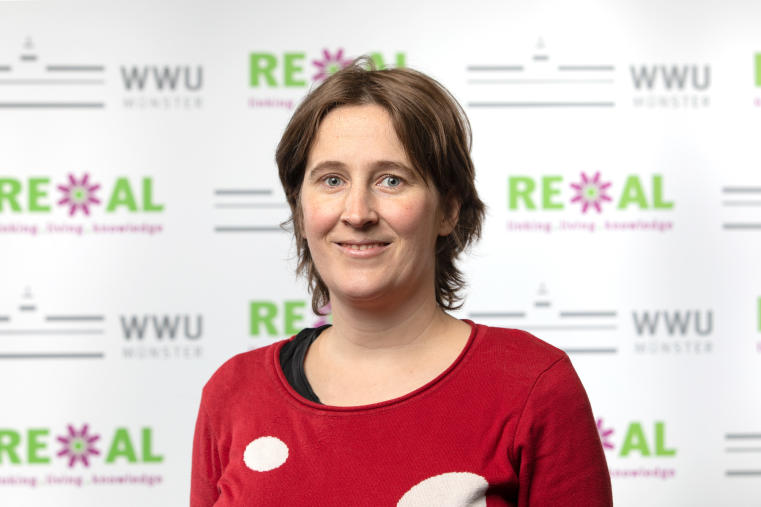Dr Maite Ogueta from Spain

In winter it is a bit harder, but then you also have the Christmas Markets and Carnival that bring a bit of light to the city.
Why did you decide to come to Muenster for your research?
After being with my boss for 3 years in London, he moved to Muenster and I decided to come with him, since the offer was really appealing (there was also a job opportunity for my husband) and we liked the city.
What is your research about (in simple terms)?
I am studying how light and darkness affect the body clock of the flies. In particular, I am interested in genes that affect the jet-lag, and how flies that carry mutations of these genes need (in general) more days to adapt to new light conditions. The topic is of high relevance and on 2017 the Nobel Prize for Medicine went for three scientist that somehow started the field by studying the first clock genes on the fly. Later it was found that the same genes are (mostly) shared by mammals, including us humans.
Has the research environment in Muenster affected your work? Would you recommend coming to Muenster to a colleague?
The institute I am working on (Inst. for Neuro and Behavioral Biology) is mainly comprised of groups working on different aspects of the fly, what helped my research. Also here in Muenster I found an easy access to high-tech microscopy. I would definitely recommend coming here, since it is a nice city and is easy to do good quality research.
What would you advise other international researchers to do during their stay in Münster? Is there anything you do particularly like about Muenster?
I particularly like to enjoy the many outdoor activities during the summer, both the ones organized by the city hall and the ones that you can do by yourself. I like to cycle to the Rieselfelder, have a nice barbecue near the Aasee, or visit the botanical garden (specially on spring). In winter it is a bit harder, but then you also have the Christmas Markets and Carnival that bring a bit of light to the city.
Further information
Programmseite ReAl - Research Alumni Strategie
